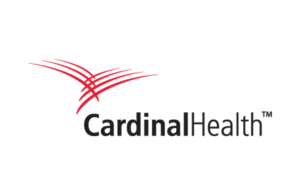 Cardinal Health (NYSE: CAH) today posted second-quarter results that beat the overall consensus on Wall Street.
Cardinal Health (NYSE: CAH) today posted second-quarter results that beat the overall consensus on Wall Street.
The Dublin, Ohio-based company reported losses of $130 million, or 50¢ per share, on sales of $51.5 billion for the three months ended December 31, 2022. Cardinal Health’s results swung to a loss versus the same quarter a year ago. During Q2 2022, it earned $49 million, or 17¢ per share.
Sales in the most recent quarter were up 13%.
Adjusted to exclude one-time items, earnings per share were $1.32, 18¢ ahead of The Street, where analysts were looking for sales of $50.74 billion.
“Our second quarter results demonstrate continued momentum against our plans, led by better-than-expected performance in the Pharmaceutical segment and Medical results in-line with our prior commentary,” CEO Jason Hollar said in a news release. “With the first half of fiscal year 2023 behind us, we are pleased to raise our full-year non-GAAP EPS guidance and outlook for the Pharmaceutical segment. In the Medical segment, we remain confident in our Medical Improvement Plan, including the actions we are taking to mitigate supply chain inflation and drive improved performance.”
The company updated its fiscal year 2023 guidance range for non-GAAP diluted earnings per share to $5.20 to $5.50 from its previous guidance of $5.04 to $5.40 apiece.
Pharma segment grows sales and profits in Q2
Cardinal Health’s pharmaceutical segment reported $47.7 billion in sales and $464 million in profits. Compared to Q2 2022, it had a sales growth of 15% and profit gains of 9%.
The company said in a news release that the revenue growth was driven by brand and specialty pharmaceutical sales growth from existing and net new customers.
Cardinal Health attributed pharmaceutical profit gains to higher contributions from brand and specialty products and generics program performance, partially offset by inflationary supply chain costs.
Shares in CAH were up 1.14% to $76.57 apiece in late morning trading. MassDevice‘s MedTech 100 Index, which includes stocks of the world’s largest medical device companies, was down more than 14%.